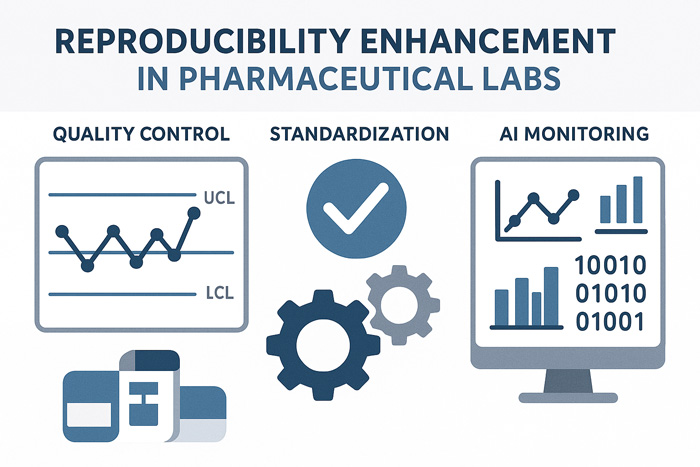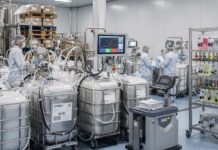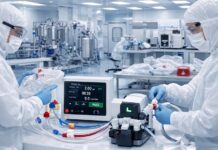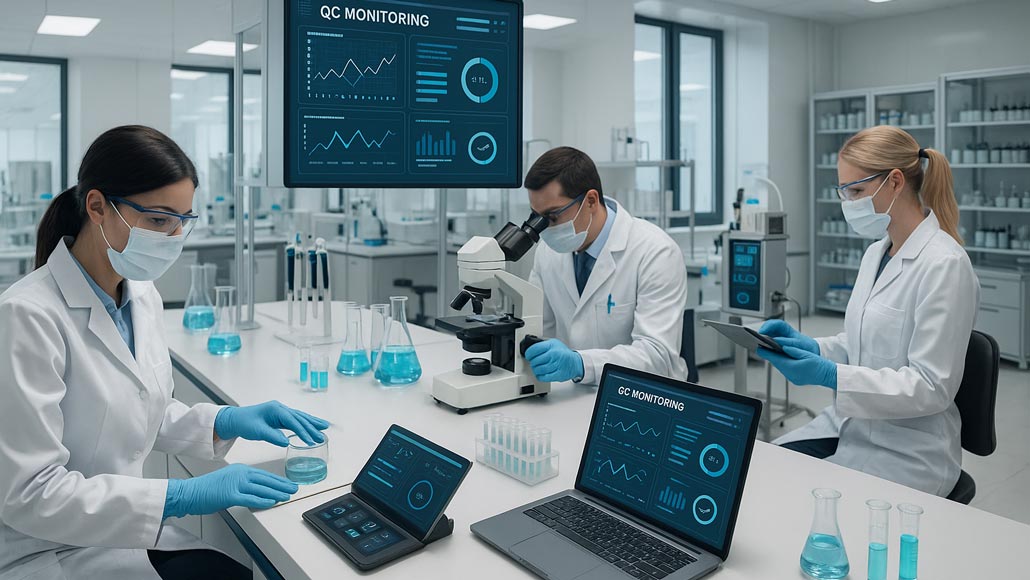Enhancing Reproducibility in Pharmaceutical Laboratory Experiments with Generative AI
The pharmaceutical industry faces a critical challenge in ensuring experimental reproducibility, a cornerstone of scientific validity that directly impacts drug development success rates and regulatory approval processes. Traditional approaches to maintaining experimental consistency often fall short when dealing with complex multi-parameter studies, leading to significant research waste and delayed therapeutic breakthroughs. Generative artificial intelligence emerges as a transformative solution that can systematically address reproducibility challenges by standardizing protocols, optimizing experimental conditions, and ensuring consistent implementation across diverse laboratory environments.
The Reproducibility Crisis in Pharmaceutical Research
Contemporary pharmaceutical research suffers from widespread reproducibility challenges that undermine scientific progress and contribute to the industry’s high failure rates. Studies indicate that a significant percentage of published research results cannot be successfully replicated by independent laboratories, creating substantial obstacles for therapeutic development and regulatory approval processes. These reproducibility issues stem from multiple sources including protocol variations, equipment differences, operator variability, and inadequate documentation of experimental conditions.
The complexity of modern pharmaceutical experiments exacerbates reproducibility challenges, as studies often involve dozens of variables that must be precisely controlled to ensure consistent outcomes. Small variations in temperature, pH, timing, reagent quality, or equipment calibration can dramatically impact experimental results, yet traditional documentation methods often fail to capture these critical details with sufficient precision.
Inter-laboratory variability represents another significant challenge, as different research organizations may interpret protocols differently, use different equipment brands, or employ different standard operating procedures. These variations can lead to conflicting results that slow scientific progress and create uncertainty about the validity of research findings.
Reproducible pharma research with AI addresses these fundamental challenges by providing systematic approaches to protocol standardization, experimental optimization, and quality control that ensure consistent results across different laboratory environments and research teams.
AI-Driven Protocol Standardization and Optimization

Generative AI systems excel at creating standardized experimental protocols that capture critical details often overlooked in traditional documentation approaches. These systems can analyze successful experimental procedures, identify key variables that influence outcomes, and generate comprehensive protocols that specify precise conditions for all aspects of experimental implementation.
The protocol development process involves sophisticated analysis of historical experimental data to identify optimal parameter combinations that maximize reproducibility while maintaining experimental validity. AI algorithms can detect subtle relationships between experimental conditions and outcomes that may not be apparent to human researchers, leading to protocol improvements that enhance both consistency and reliability.
Automated protocol generation ensures that all relevant experimental details are captured in standardized formats that can be easily interpreted and implemented by different research teams. This comprehensive documentation includes specific reagent preparation procedures, equipment calibration requirements, timing specifications, and quality control checkpoints that must be monitored throughout experimental procedures.
Dynamic protocol optimization enables continuous improvement of experimental procedures based on accumulating evidence from multiple implementations. AI systems can identify protocol modifications that improve reproducibility without compromising scientific validity, ensuring that experimental approaches remain current with best practices and technological advances.
The technology enables personalized protocol adaptation that accounts for specific laboratory capabilities, equipment characteristics, and personnel expertise while maintaining standardized core procedures. This flexibility ensures that protocols can be successfully implemented across diverse research environments without compromising reproducibility standards.
Intelligent Quality Control and Monitoring Systems
Modern AI-enhanced quality control systems provide real-time monitoring of experimental conditions and automated detection of deviations that could compromise reproducibility. These systems continuously analyze sensor data from laboratory equipment, environmental monitoring systems, and automated analysis platforms to ensure that experimental conditions remain within specified parameters throughout study execution.
Predictive quality control capabilities enable identification of potential problems before they impact experimental outcomes. AI algorithms can detect subtle trends in equipment performance, reagent quality, or environmental conditions that suggest impending issues, enabling proactive interventions that maintain experimental consistency.
Automated deviation detection systems alert researchers when experimental conditions deviate from specified protocols, providing immediate feedback that enables corrective actions before experiments are compromised. These systems can distinguish between acceptable variations and significant deviations that require intervention, reducing false alarms while ensuring appropriate response to genuine problems.
Statistical process control enhanced by machine learning provides sophisticated analysis of experimental variability that can identify systematic sources of inconsistency. This analysis enables targeted improvements to experimental procedures while ensuring that observed variations remain within acceptable limits for scientific validity.
The technology enables comprehensive documentation of all quality control activities, creating audit trails that support regulatory compliance while providing detailed records that facilitate troubleshooting and process improvement efforts.
Standardizing Data Collection and Analysis Procedures
Data collection standardization represents a critical aspect of reproducibility that benefits significantly from AI-driven approaches. Traditional data collection methods often suffer from inconsistencies in measurement techniques, data recording procedures, and analysis methodologies that can lead to spurious results and poor reproducibility across different research teams.
Automated data collection systems eliminate many sources of human error while ensuring consistent measurement approaches across different experimental implementations. These systems can standardize calibration procedures, measurement timing, and data recording formats to minimize variability introduced during data collection phases.
AI-enhanced data validation procedures can automatically detect anomalous data points, identify systematic measurement errors, and flag potential data quality issues that could compromise experimental conclusions. This automated validation process ensures that only high-quality data is used for analysis while providing detailed documentation of data quality assessments.
Standardized analysis pipelines ensure that identical statistical approaches are applied consistently across different studies and research teams. AI systems can automate complex analysis procedures while ensuring that all relevant statistical assumptions are met and appropriate methods are selected based on experimental design characteristics.
The integration of reproducible pharma research with AI approaches ensures that data analysis procedures are fully documented and can be exactly replicated by independent researchers, supporting transparency and scientific validation requirements.
Addressing Inter-Laboratory Variability
Inter-laboratory reproducibility represents one of the most challenging aspects of pharmaceutical research, as different organizations may use different equipment, reagents, and procedures that can significantly impact experimental outcomes. AI systems address these challenges by providing systematic approaches to harmonizing experimental procedures across different laboratory environments.
Laboratory characterization systems can analyze equipment performance, environmental conditions, and procedural variations to identify factors that might influence experimental reproducibility. This analysis enables development of laboratory-specific protocol modifications that account for local conditions while maintaining standardized core procedures.
Equipment standardization recommendations help laboratories select instruments and reagents that are most likely to produce consistent results across different research environments. AI analysis of equipment performance data can identify optimal configurations and calibration procedures that maximize inter-laboratory reproducibility.
Cross-laboratory validation protocols ensure that experimental procedures can be successfully implemented across different research environments while maintaining consistent results. These validation approaches systematically test protocol robustness across different equipment types, reagent sources, and operator capabilities.
The technology enables real-time comparison of results across different laboratories, providing immediate feedback about inter-laboratory consistency and identifying potential sources of variation that require attention. This comparative analysis supports continuous improvement of experimental procedures while ensuring that reproducibility standards are maintained across research networks.
Optimizing Experimental Design for Reproducibility
Experimental design optimization represents a proactive approach to enhancing reproducibility by ensuring that studies are designed with adequate statistical power, appropriate controls, and sufficient replication to detect meaningful effects consistently. AI systems can analyze experimental design characteristics to identify optimal approaches that maximize reproducibility while minimizing resource requirements.
Statistical power analysis enhanced by machine learning can predict the sample sizes needed to detect meaningful effects with high probability while accounting for expected variability based on historical data. This predictive capability ensures that studies are adequately powered while avoiding unnecessary resource expenditure on oversized experiments.
Control strategy optimization ensures that appropriate positive and negative controls are included in experimental designs to validate experimental systems and detect potential problems. AI systems can recommend optimal control selections based on experimental objectives and historical performance data.
Randomization and blocking strategies become more sophisticated when optimized by AI algorithms that can account for multiple sources of variation while ensuring balanced experimental designs. These optimization approaches minimize confounding effects while maximizing the ability to detect treatment effects consistently.
Replication strategies can be optimized to provide adequate statistical power while accounting for practical resource constraints. AI systems can recommend optimal combinations of technical and biological replication that maximize reproducibility within available resource limits.
Automated Documentation and Record-Keeping
Comprehensive documentation represents a fundamental requirement for reproducible research that is significantly enhanced by AI-driven automation. Traditional documentation approaches often rely on manual record-keeping that may be incomplete, inconsistent, or difficult to interpret by independent researchers attempting to replicate experimental procedures.
Automated laboratory notebooks capture detailed records of all experimental activities, including precise timing, reagent lot numbers, equipment settings, environmental conditions, and operator identities. This comprehensive documentation eliminates gaps in experimental records while ensuring that all relevant information is available for replication efforts.
Electronic protocol execution systems guide researchers through standardized procedures while automatically documenting compliance with specified protocols. These systems ensure that experimental procedures are followed consistently while creating detailed records of all experimental activities.
Version control systems for protocols and analysis procedures ensure that changes to experimental approaches are properly documented and that historical versions remain available for reference. This version control capability is essential for understanding how experimental procedures have evolved and for replicating historical studies.
The technology enables automated generation of comprehensive experimental reports that include all relevant methodological details, quality control results, and statistical analyses. These standardized reports facilitate peer review, regulatory submission, and replication efforts by independent researchers.
Machine Learning-Enhanced Error Detection and Prevention
Advanced machine learning algorithms can identify patterns in experimental data that suggest systematic errors, protocol deviations, or equipment malfunctions that could compromise reproducibility. These error detection capabilities enable proactive interventions that prevent reproducibility problems before they impact research outcomes.
Anomaly detection systems analyze experimental data in real-time to identify results that deviate significantly from expected patterns. These systems can distinguish between genuine biological effects and experimental artifacts, ensuring that only valid results are included in scientific conclusions.
Predictive maintenance systems analyze equipment performance data to identify instruments that may be developing problems that could affect experimental reproducibility. This predictive capability enables proactive maintenance that prevents equipment-related reproducibility issues.
Protocol compliance monitoring systems ensure that experimental procedures are followed consistently by detecting deviations from specified protocols and alerting researchers to potential compliance issues. This monitoring capability is particularly valuable for complex protocols with multiple critical steps.
The integration of multiple error detection systems provides comprehensive quality assurance that addresses potential reproducibility threats from multiple sources simultaneously, ensuring robust experimental results that can be confidently replicated by independent researchers.
Training and Skill Standardization
Human factors represent a significant source of variability in experimental reproducibility, as different operators may have different skill levels, techniques, or interpretations of experimental procedures. AI systems can address these challenges by providing standardized training approaches and skill assessment tools that ensure consistent operator performance across different laboratory environments.
Personalized training programs can adapt to individual learning styles and skill levels while ensuring that all operators achieve consistent competency standards for critical experimental procedures. These training programs can include virtual reality simulations, interactive tutorials, and competency assessments that verify operator readiness.
Skill assessment systems can evaluate operator performance using objective metrics that identify areas where additional training may be needed. These assessments can be integrated with experimental documentation systems to ensure that only qualified operators perform critical experimental procedures.
Standardized operating procedure training ensures that all research personnel understand and can implement experimental protocols consistently. AI-enhanced training systems can provide interactive guidance that adapts to individual learning needs while ensuring comprehensive understanding of critical procedures.
The technology enables continuous skill monitoring that identifies operators who may need refresher training or additional support to maintain consistent performance standards. This ongoing monitoring ensures that human factors remain optimized for reproducibility throughout extended research programs.
Regulatory Compliance and Validation
The integration of AI into pharmaceutical reproducibility efforts requires careful attention to regulatory requirements that govern experimental procedures, data quality, and documentation standards. AI systems must be designed and implemented to support compliance with FDA, EMA, and other regulatory guidelines while enhancing rather than compromising experimental validity.
Validation protocols must demonstrate that AI-enhanced experimental procedures meet appropriate standards for pharmaceutical research while providing reproducible results that can be verified by regulatory agencies. This validation process includes comprehensive testing of AI systems, documentation of algorithm performance, and demonstration of reproducibility improvements.
Audit trail capabilities ensure that all AI-driven decisions and recommendations are properly documented and can be reviewed by regulatory inspectors. These comprehensive records include algorithm inputs, decision logic, and outcome validation that support regulatory compliance requirements.
Quality assurance protocols ensure that AI systems maintain consistent performance and continue to support reproducibility objectives throughout extended periods of operation. Regular validation testing, performance monitoring, and system updates ensure ongoing compliance with regulatory standards.
Future Developments and Emerging Technologies
The future of AI-enhanced reproducibility involves increasingly sophisticated systems that can address even more complex sources of experimental variation while providing deeper insights into optimal experimental procedures. Emerging technologies including advanced sensor networks, robotic automation, and enhanced machine learning algorithms promise to further improve reproducibility while reducing the human effort required to maintain experimental consistency.
Fully automated laboratory systems may eventually eliminate many sources of human variability while ensuring perfect compliance with optimized experimental protocols. These automated systems would provide unprecedented levels of reproducibility while enabling continuous operation and comprehensive data collection.
Real-time adaptive optimization systems may continuously adjust experimental procedures based on ongoing results and environmental conditions to maintain optimal reproducibility throughout extended studies. This adaptive capability would ensure consistent performance despite changing conditions or equipment aging.
Collaborative validation networks may enable multiple laboratories to simultaneously validate experimental procedures while contributing to shared databases that improve reproducibility understanding across the pharmaceutical industry. These collaborative approaches could accelerate reproducibility improvements while reducing individual organization validation costs.
Conclusion
Generative AI represents a transformative approach to addressing reproducibility challenges that have long plagued pharmaceutical research. By systematically standardizing protocols, optimizing experimental conditions, and ensuring consistent implementation across diverse environments, AI systems can significantly improve the reliability and validity of pharmaceutical research results.
Reproducible pharma research with AI approaches enable pharmaceutical organizations to reduce research waste, accelerate discovery timelines, and improve regulatory success rates by ensuring that experimental results can be consistently replicated across different laboratories and research teams. This technological advancement addresses fundamental scientific requirements while supporting practical business objectives related to development efficiency and regulatory compliance.
The successful implementation of AI-enhanced reproducibility requires careful attention to validation, training, and regulatory compliance considerations while maintaining focus on core scientific objectives. Organizations that invest in robust reproducibility enhancement strategies will gain significant competitive advantages through improved research quality, reduced development risks, and enhanced regulatory success rates.























